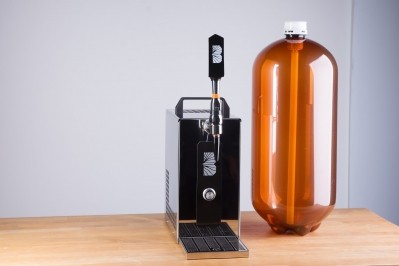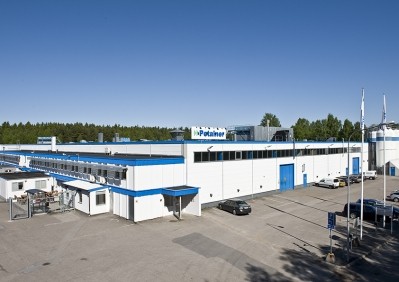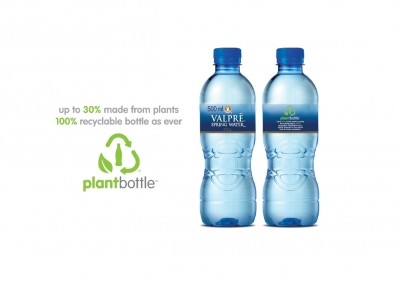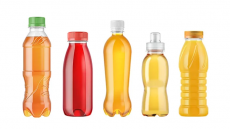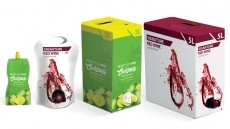Refillable bottles are the future, says Petainer, unveiling ‘greenest ever’ bottle
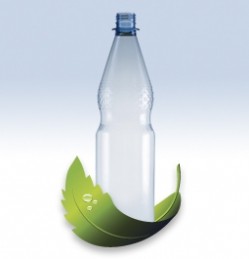
A spokesman for the firm, which is headquartered in the Czech Republic, told BeverageDaily.com: "Currently, refillable bottles are produced with zero post-consumer recycled material; therefore this bottle is a significant environmental improvement that is already considered by many independent studies to be the most environmentally friendly and sustainable."
Group CEO Nigel Pritchard said that bottle-to-bottle recycling, added to the existing environmental and economic benefits of refillable bottles, meant there were clear benefits for fillers and brewers who considered switching to refillable bottles.
He said: “We are already seeing a number of customers and countries considering the introduction of refillables.”
Pritchard noted that firms using one-way bottles (thrown away after use) could spend four or five times as much on packaging as companies bottling equivalent volumes in refillable bottles.
According to Petainer, refillable bottles only need replacing once in every 20 trips, with total virgin material used per filling consequently 90% lower, a figure that the firm claims is improved still further when post-consumer recyclate was used.
Lower carbon footprint
The company said research showed that refillable bottles – returned to the retailer by the consumer once used, then sent to the beverage manufacturer for washing and refilling – had a lower carbon footprint than ‘one way’ bottles, even if the latter were recovered for recycling.
Discussing the unpopularity in the US of refillable beverage containers, in the 2002 study Reduce, Reuse, Refill! produced for the Washington-based Institute for Local Self-Reliance, Brenda Platt and Doug Rowe wrote: “When compared to non-refilling systems, refilling systems contribute less to global warming, acid rain, smog, and solid waste.
“Refilling systems also use less energy and water. In addition, refilling eliminates the need to find markets for green and brown glass bottles and plastic bottles."
Petainer said that, despite its 25% recycled PET content, its new ‘greener’ bottle had the same performance characteristics as a refillable bottle made wholly from virgin material.
It said the bottle provided the same number of ‘round trips’, had the same top-load strength as virgin bottles that allowed it to be stacked in the same way, and also provided the same level of CO2 retention in carbonated soft drinks.
Asked about the challenges of using post-consumer PET in refillable bottles, the spokesman said: "The use of post-consumer recycled PET may have a slight discolouring effect on the bottles. This is not usually apparent on thin-walled ‘one-way’ bottles but can be visible in the walls of highly engineered refillable bottles with thicker walls.
"Use of 25% recycled material with minimal impact on clarity is a considerable technical achievement, made possible due to our knowledge of the different types of PET resins that is used, to understand what specific resin composition would be optimal when combined with post consumer recycled PET."
Eco and economic sense?
The company is able to apply the technology to bottles manufactured in its own plants in Sweden and the Czech Republic and also to bottles blown from its preforms by clients, and the spokesman said principal markets were currently Germany and Norway, where legislation encourages the use of refillable bottles. "The water, carbonated soft drinks and beer sectors have the biggest markets for refillable bottles," he said.
Pritchard said refillable bottles were already a beverage packaging system with one of the lowest environmental footprints, due to lower use of virgin material and incorporation of post-consumer recyclate, which meant bottles took less energy and other resources to make.
He said: “They are also economic in the traditional sense because the environmental benefits translate into lower costs. As the cost of PET resins inexorably increases, the economics of refillable bottles using recycled material become even more compelling.
Petainer manufactures both refillable and one-way bottles in PET, and has also manufactured a one-way bottle using 100% recycled material. The company said it is now working on improving the use of post-consumer recyclate even further.
